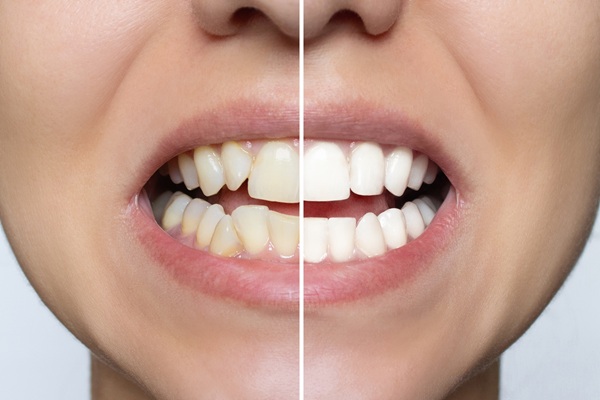How a Pediatric Dentist Approaches Teeth Whitening

Teeth whitening is a popular cosmetic treatment aimed at enhancing the brightness of teeth, but when it comes to children, a pediatric dentist takes a thoughtful, cautious approach. While the desire for a bright smile may begin early, the timing, safety, and techniques used for teeth whitening in younger patients require careful consideration. Pediatric dentists focus on treatments that preserve enamel health while achieving optimal results.
When is teeth whitening appropriate for children?
Pediatric dentists typically recommend waiting until the child's permanent teeth have fully erupted before considering teeth whitening. Whitening treatments are most effective on fully developed teeth because younger, developing teeth may have softer enamel, which is more susceptible to damage from whitening agents. Typically, this means waiting until around the ages of 12 to 14, when most children have their permanent molars and incisors in place.
Before deciding on whitening, a pediatric dentist evaluates the patient's overall oral health. If the they have cavities, gum issues, or other dental problems, the dentist will want to address them before undergoing teeth whitening treatment. Only after ensuring the child's teeth are healthy will a pediatric dentist consider whitening options.
Methods a pediatric dentist may use
If a pediatric dentist determines that teeth whitening is appropriate, they will use methods specifically designed for younger patients. These treatments are gentle, effective, and more predictable compared to over-the-counter (OTC) products that can be too harsh for children's teeth.
Professional whitening treatments offered by pediatric dentists may include custom-fitted trays with a mild whitening gel. These trays are carefully designed to ensure the gel only comes in contact with the teeth, minimizing irritation to the gums and soft tissues. The whitening gel used in a dental office is also typically lower in concentration than those in OTC products, ensuring safer and more controlled results.
Some pediatric dentists offer in-office treatments as an option, where a stronger, dentist-administered gel is applied under professional supervision. This ensures the whitening process is both effective and safe for the child's developing teeth.
The importance of monitoring for sensitivity
Teeth whitening treatments can sometimes cause sensitivity, particularly in younger patients whose enamel is still developing. A pediatric dentist will closely monitor the child's response to treatment and adjust the process if needed. They may also recommend using a fluoride treatment before or after the whitening procedure to help strengthen enamel and reduce sensitivity.
It is important to remember that not all children's teeth are ideal candidates for whitening. If the discoloration is due to intrinsic factors like enamel defects or underlying medical conditions, teeth whitening may not yield the desired results. In such cases, a pediatric dentist may explore alternative options, such as bonding or crowns, to address cosmetic concerns.
Consult a pediatric dentist
Teeth whitening can be a great way for older pediatric patients to achieve a brighter smile, but it is essential for a dentist to oversee the process. By carefully evaluating the child's oral health, using appropriate treatments, and monitoring for potential sensitivity, pediatric dentists ensure that teeth whitening is a safe, effective solution for enhancing a child's smile. If you are interested in teeth whitening for your child, contact Tiny Teeth Pediatric Dentistry to consult our dentist.
Request an appointment here: https://tinyteethpediatricdentistry.com or call Tiny Teeth Pediatric Dentistry at (516) 243-1364 for an appointment in our Mineola office.
Check out what others are saying about our dental services on Yelp: Teeth Whitening in Mineola, NY.
Related Posts
Pediatric dentistry is a field of dentistry that deals with the oral health of children. Parents need to choose a pediatric dentist who is experienced and qualified to care for their child's teeth.Here are some things to consider when choosing a pediatric dentist:The pediatric dentist should be certified by the American Board of Pediatric Dentistry.…
Your child's teeth will develop and change as they age. Likewise, the kind of dental care they need will change over time. The adult teeth may not develop properly without proper oral care, leading to gum disease and decay problems. Talking to a pediatric dentistry professional and asking the appropriate questions may help better care…
Pediatric dentistry focuses on providing treatments and services that help to keep your child's mouth healthy. Pediatric dentists offer common dental treatments, such as sealants, fluoride treatments, and space maintainers.Let us take a look at some of the more commonly used treatments in pediatric dentistry:Sealants are a type of preventative treatment that pediatric dentists often…
When teeth become damaged due to cavities or injury, dentists may use tooth colored fillings, also called composite fillings, to prevent extraction and may even recommend them to their patients instead of traditional silver amalgam material. There are several circumstances that make this natural-looking material more suitable during a tooth repair.Silver amalgam fillings were widely…
